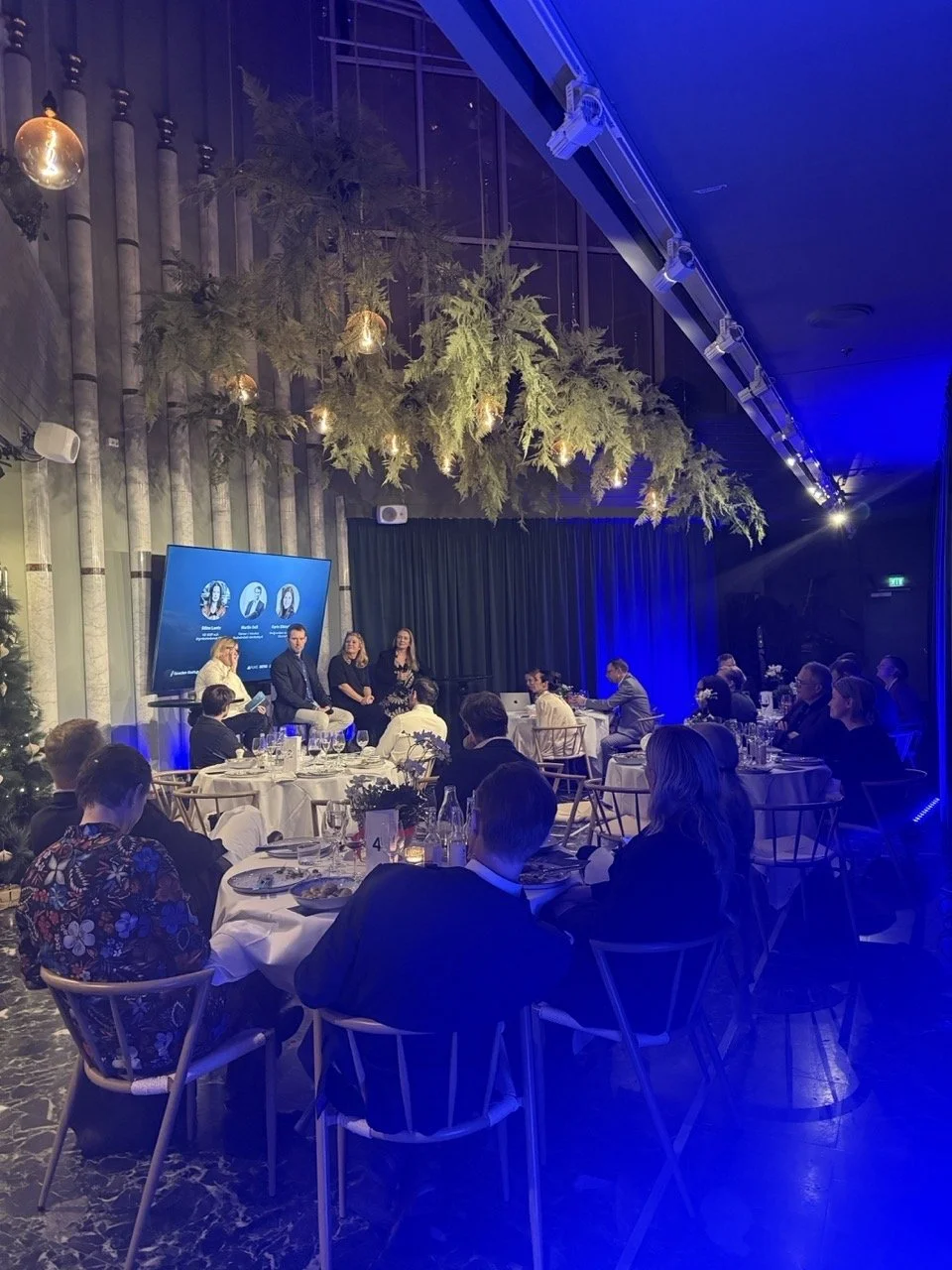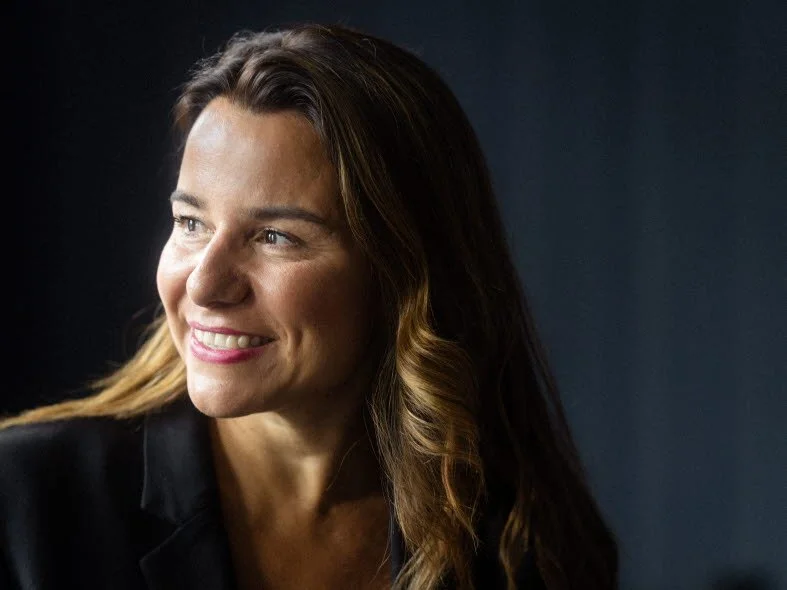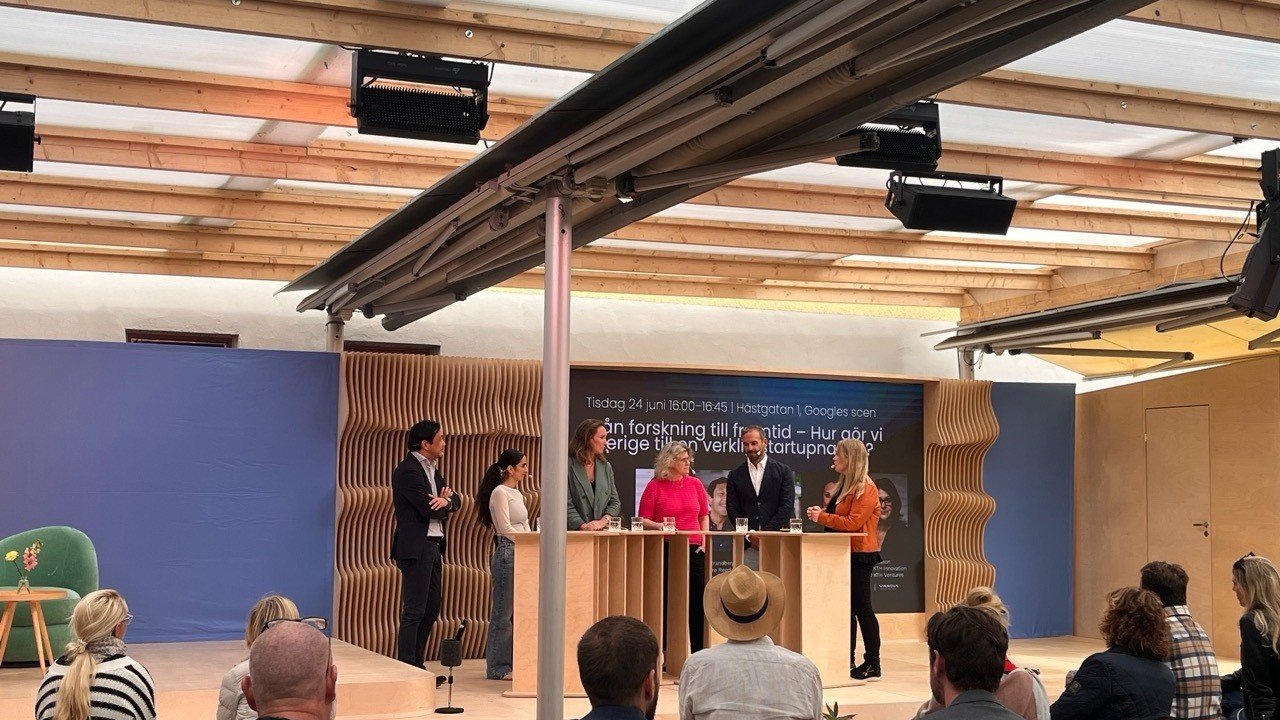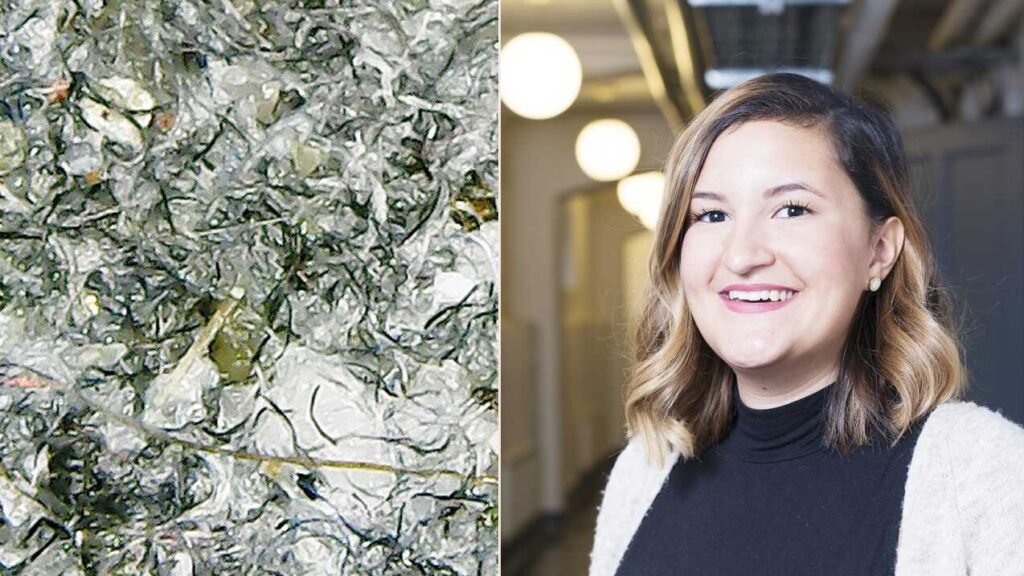
What's new

Sweden Startup Nation gathered handpicked partners and enthusiasts - first fundraising dinner held at Berns
Sweden Startup Nation gathered investors, entrepreneurs and partners at Berns for its first fundraising dinner - an evening that marked the start of a joint, data-driven effort to build the world's best startup nation.

Regional power meets national investment - Sörmlandsfonden joins Sweden Startup Nation
Sörmlandsfonden has gone from "white spot" to regional force in venture capital. Now they are taking the next step and joining Sweden Startup Nation - for more data, smarter matching and stronger collaboration across the country.

Almega Tjänsteföretagen: A partner that invests in Sweden's future employers
Abbe Alzarzour, Communications Officer and Head of Young Entrepreneurship at Almega Tjänsteföretagen, sees Sweden Startup Nation as a natural extension of Almega's long-term work to strengthen Sweden's service sector and future employers.

National Representative of the Year: Deqa Abukar on inclusion as a business strategy - and why Sweden must build together
When Deqa Abukar, co-founder of BLING and initiator of Sweden Startup Nation, was named National Representative of the Year in Angel Prize 2025, it was more than a personal recognition. It was a testament to the power of an ecosystem that grows through collaboration, courage - and inclusive innovation.
Together with last year's winner, Stina Lantz (CEO, SISP), she is behind Sweden Startup Nation: a common platform that brings together Sweden's startup forces, builds with data and opens doors for more.

Estonia's Startup Leap: "How Policy, Tech, and Talent Shaped Estonia's Startup Nation"
Estonia's rise as a digital-first startup hub offers valuable lessons for the Nordics. Through a culture of trust, agile governance, and tight collaboration between startups and policymakers, the country has built one of the world's most efficient digital ecosystems - from e-residency to instant company registration. Startup Estonia acts as a bridge between government and entrepreneurs, ensuring policies meet founders' needs. The result is a system where transparency fuels trust, and pragmatism drives innovation. For Sweden, Estonia's example highlights the importance of regulatory agility, international talent mobility, and policy designed with startups - not just for them.

Join Sweden Startup Nation's Agentic Tech Team
At the core of our work is the Swedish Startup Nation Data Platform, a modern data and application backbone that connects multiple databases and powers several products: the public Swedish Startup Nation website, many dashboards for analytics, and admin tools for ETL, monitoring, and data management.

"We build bridges in the ecosystem" - Özge Özen Zink on SEB's entrepreneurial ladder and the opportunities of future entrepreneurship
Özge Özen Zink, head of SEB's entrepreneurial ladder, wants to build bridges in the entrepreneurial ecosystem - from school to scaleup. She points to the scaleup gap and the need for more inclusive capital flows, but also sees great opportunities: with the right collaborations, Sweden can become a catalyst for the next generation of entrepreneurs.

From research to the future: How to make Sweden a true startup nation
During the Almedalen week gathered the Sweden Startup Nation brought together actors from academia, business, the public sector and the startup scene for a sharp conversation about what it takes for more research-intensive companies to become scalable - here in Sweden, not in Silicon Valley. From lack of capital and tough regulations to the ability to attract and retain international talent - there is much we can and must do better.

Why Sweden lost MARLEQ - insights from global entrepreneur Milo Radulovic
Milo Radulovic, founder of the global job coaching platform MARLEQ, wanted to build his company in Sweden - but was hindered by red tape and a lack of support for international entrepreneurs. Despite strong innovation environments, he was forced to choose Estonia, where the process was fast, digital and open.
He calls for a Swedish start-up visa, easier routes into the ecosystem and more accessible funding. Sweden's strengths are there - but without reforms, the country risks falling behind.

Sweden has the research - but lacks customers and technological optimism
David Sonnek, CEO of Navigare Ventures, warns that Swedish deeptech start-ups risk moving abroad because Sweden is often not their first customer. Despite strong research and competent innovation support, there is no government demand for new technologies. Public procurement rarely promotes innovation, and Swedish industry is characterized by short-termism and technological scepticism.
Sonnek calls for more role models among researchers turned entrepreneurs, as well as a national narrative that strengthens Sweden's attractiveness for investment in cutting-edge technologies.

Boel Rydenå Swartling: "Europe doesn't have an innovation problem - we have a commercialization problem"
Boel Rydenå Swartling has been investing in sustainable technologies for over a decade and is a strong voice for the investor community in the climate transition. In this interview, she warns that Europe risks losing the next generation of industrial companies - not because it lacks ideas, but because it lacks systems to bring innovation to market. She calls for a new approach to commercialization, with a focus on capital, public procurement and long-term thinking.

Europe's new startup and scaleup strategy: A window of opportunity - but Sweden must act
On June 5, the Sweden Startup Nation gathered actors from the entire innovation ecosystem, including startups, scaleups, investors, authorities, ministries, parliament, public sector and established business, for a lunch seminar at KTH Innovation where Europe's newstrategy for startups and scaleups was in focus.
The strategy aims to make the EU the best place in the world to start and grow businesses - but what does it take to make it a reality in Sweden?
𝗠𝗲𝗱𝘃𝗲𝗿𝗸𝗮𝗻𝗱𝗲 𝗶 𝗱𝗶𝘀𝗸𝘂𝘀𝘀𝗶𝗼𝗻𝗲𝗻:
- Vasco Pereira da Silva, Allied ForStartups
- AnnaBergstrand, Vinnova
- Olivia Nestius,Graphmatech
- Jan Dinkelspiel, GREEN14
- Johan Attby, Norrsken VC
- Lisa Ericsson, KTH Innovation and KTH Ventures AB (moderator)
𝗣𝗮𝗻𝗲𝗹𝗲𝗻 𝗹𝘆𝗳𝘁𝗲 𝗯𝗹𝗮𝗻𝗱 𝗮𝗻𝗻𝗮𝘁 𝗯𝗲𝗵𝗼𝘃𝗲𝘁 𝗮𝘃:
✔️ A true single European market
✔️ Capital at the right stage - especially for deeptech
✔️ Public procurement as an enabler, not a barrier
✔️ A new mindset on risk, scale-up and pace
"Strategy is an important framework - but it's implementation that matters!"
Now it is up to all of us. Join the European dialogue, contribute to implementation - and shape the future innovation climate.

Liam Hardey: "Sweden's future requires closer collaboration between government and growth companies"
From elite British football to cutting-edge cleantech Liam Hardey is CEO and co-founder of Cellfion - one of Sweden's most promising deeptech companies.
When Sweden Startup Nation met him for an interview, he talked about the journey from research lab to pilot production, the search for the right kind of capital and why the future of Swedish growth companies risks being written elsewhere.
"We want to see a future here in Sweden - but other countries are quick with both dialog and financial incentives."
Liam's call to decision-makers is clear: Sweden must get better at supporting companies in the transition to industrial scale - and that requires closer collaboration between government and startups.
Read the full interview and get his perspective on what it takes for Sweden to become the world's best startup nation.

Future slowed down by old rules - now tax reform for startups is needed
Sweden has one of the world's most research-intensive innovation systems - but today's tax rules are not adapted to knowledge-intensive startups. In two recent consultation responses, SISP and FUHS show how regulations such as the R&D deduction and the expert tax miss the mark, and propose concrete reforms: a special startup filter, simplified application paths and a more reality-based approach in government assessments. The goal is a tax system that reflects the reality of today's start-up environment - not yesterday's big company logic.

From research to perishables - Saveggy's journey towards a plastic-free food industry
Vahid Sohrabpour and Arash Fayyazi founded Saveggy to reduce food waste and plastic consumption. Their solution has grown out of Swedish research and international collaboration.

Sweden must shift gears - action is needed now to harness and scale critical innovation
The message in the Riksdag was clear. Sweden is at risk of falling behind - political action is now needed to scale critical innovation from research to the global market.

Henrik Båge: "It's not the technology that fails - it's the system"
Henrik Båge, co-founder of Phoenix Biopower, talks in an interview with Sweden Startup Nation Nation about the company's bankruptcy after developing a technology for efficient electricity production from biomass. Although the technology worked, a lack of long-term funding and structural barriers in the Swedish startup ecosystem led to the company's downfall. Båge is now calling for reforms to better support deeptech innovations.

Isabella Palmgren: "It's hard - but it can be done"
In this interview, Isabella Palmgren, co-founder and CEO of Mimbly, shares the journey from a thesis at Chalmers to the launch of Mimbox - an innovative solution that recycles up to 70% of wash water and filters out microplastics. Despite challenges with funding and product development, Mimbly has installed over 150 units in Europe and saved millions of liters of water. Palmgren highlights the need for faster support processes and fairer capital flows for hardware companies, as well as Sweden's potential to lead in sustainable innovation.

RosholmDell - A committed partner
When the plans for Sweden Startup Nation as a national platform to gather and support Sweden's startup and scaleup ecosystem started to take shape, law firm RosholmDell was the first official partner to step on board. Under the leadership of Martin Dell, RosholmDell has built a strong position in the startup world and their involvement in the initiative is no coincidence.

Feasibility study: National powerhouse for startups and scaleups
Sweden has a strong foundation of innovative startups and fast-growing scaleups with the potential to build wealth for generations to come. For this to become a reality, however, a more integrated and data-driven approach is needed. Today, there is no centralized knowledge platform about the target group, which makes it difficult to create effective and targeted initiatives. This is where Sweden Startup Nation comes into the picture.
